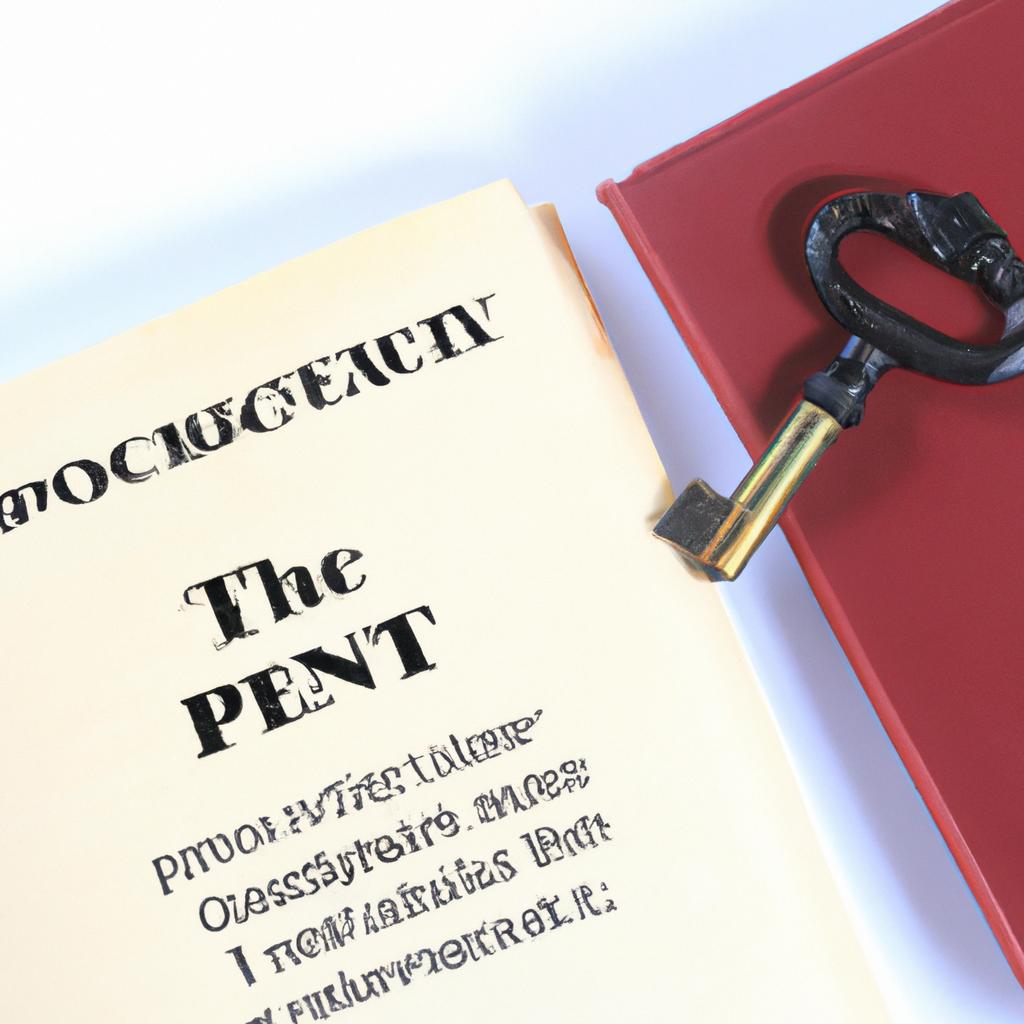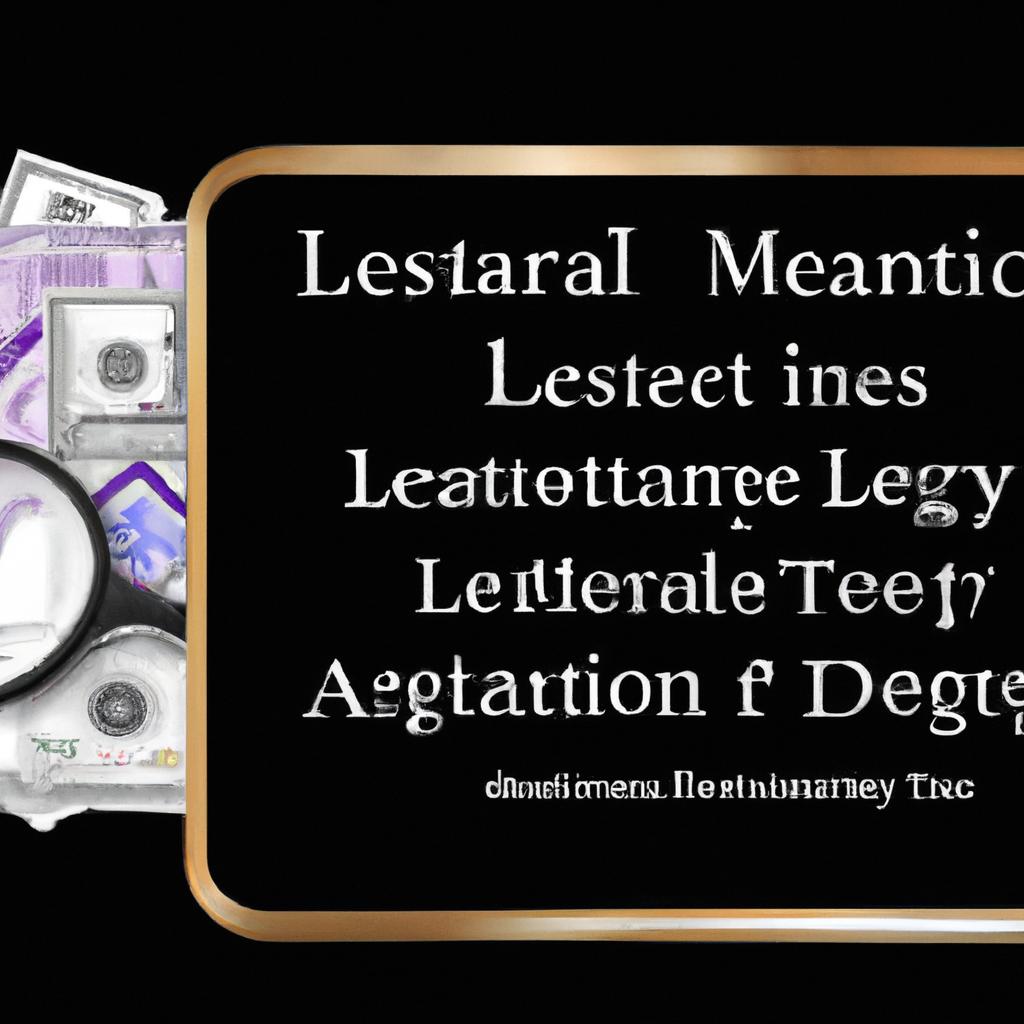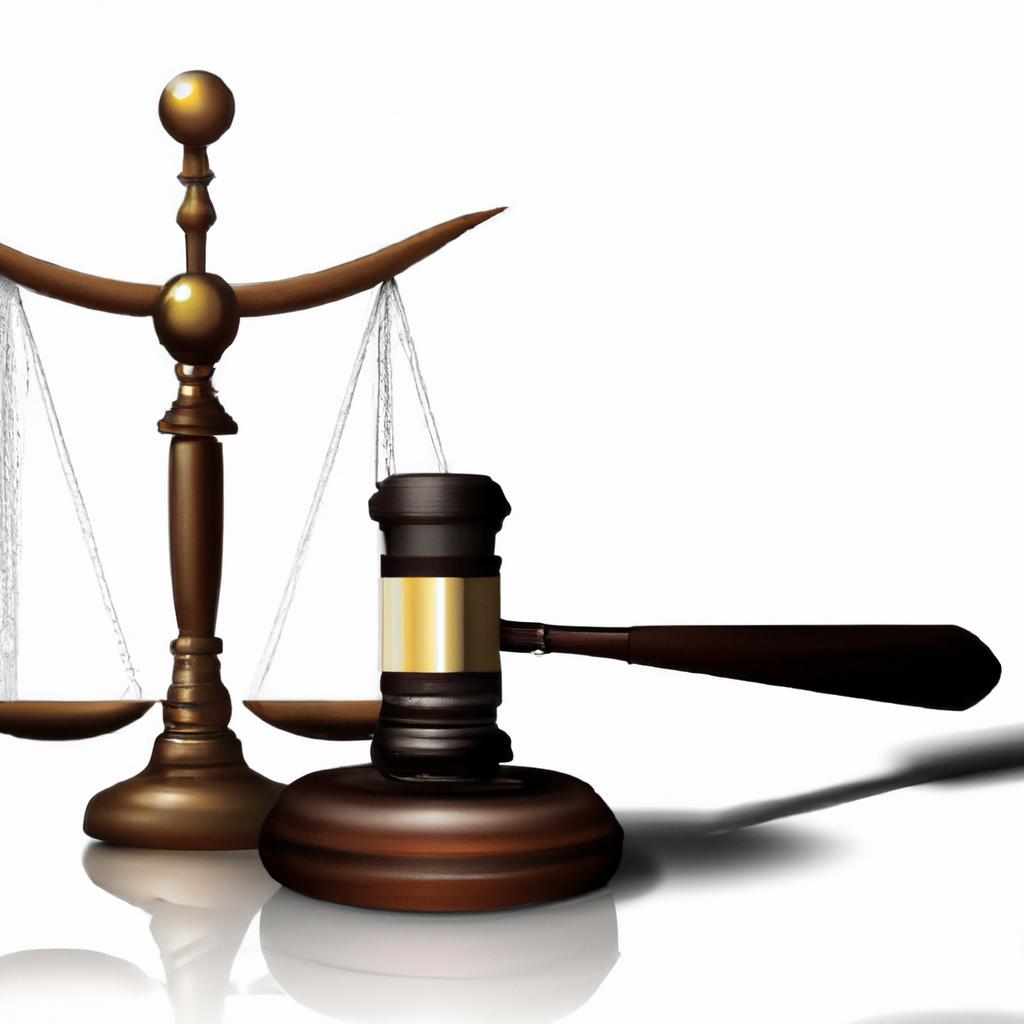In the intricate realm of estate management, the discovery and distribution of unclaimed property for deceased individuals stands as a complex and often overlooked facet of the legal process. As seasoned practitioners in the field of estate planning, probate, elder law, Wills, and trusts, Morgan Legal Group, situated in the bustling metropolis of New York City, navigates the intricate web of laws governing unclaimed property for deceased individuals with precision and expertise. Join us as we delve into the nuances of this esoteric area of law and shed light on the potential avenues for rightful heirs to claim what is rightfully theirs.
Understanding the Process of Unclaimed Property for Deceased Individuals
When an individual passes away, their assets and properties are typically distributed to their heirs or beneficiaries through a process called probate. However, there are instances where certain assets go unclaimed, either because the deceased did not leave a will or because the rightful heirs are unknown or unable to be located. This unclaimed property can include bank accounts, stocks, bonds, real estate, and other valuable assets.
is crucial in ensuring that all assets are properly accounted for and distributed according to the deceased’s wishes or state laws. It involves conducting a thorough search for any unclaimed assets, contacting potential heirs or beneficiaries, submitting a claim to the appropriate authorities, and providing any necessary documentation to prove ownership. If you believe that you may be entitled to unclaimed property from a deceased individual, it is advisable to consult with an experienced estate planning attorney to guide you through the process.

Key Considerations When Dealing with Unclaimed Property in Estate Administration
When dealing with unclaimed property in estate administration, it is vital to consider several key factors to ensure that the process is conducted smoothly and efficiently. One important consideration is to thoroughly review the deceased individual’s financial records and assets to identify any potential unclaimed property that may exist. This can include uncashed checks, dormant bank accounts, security deposits, insurance proceeds, and other assets that have not been claimed by the rightful heirs.
Another key consideration is to comply with state laws and regulations regarding unclaimed property. Each state has specific rules and deadlines for reporting and remitting unclaimed property, and failure to adhere to these guidelines can result in penalties and legal consequences. It is essential to carefully document all steps taken to locate and address unclaimed property, including sending notifications to potential beneficiaries and submitting reports to the appropriate state authorities.

Strategies for Locating and Recovering Unclaimed Assets for Deceased Loved Ones
When a loved one passes away, it can be overwhelming to navigate the process of locating and recovering unclaimed assets that belong to them. At Morgan Legal Group, we understand the importance of ensuring that all assets are properly accounted for and distributed according to the deceased’s wishes. Here are some strategies to help you in the process:
- Begin by conducting a thorough search for unclaimed assets in various databases, such as state unclaimed property registries, insurance policies, retirement accounts, and bank accounts.
- Consult with a probate lawyer to assist you in identifying any potential unclaimed assets, navigating legal processes, and ensuring that all necessary steps are taken to recover the assets on behalf of the deceased.
| State Unclaimed Property Registry | Insurance Policies | Retirement Accounts |
|---|---|---|
| $1,500 | $3,200 | $5,000 |
It is crucial to act promptly in locating and recovering unclaimed assets for deceased loved ones, as these assets may be at risk of being lost forever. By following these strategies and seeking the guidance of our experienced Morgan Legal Group team, you can ensure that the deceased’s assets are properly accounted for and distributed according to their wishes.

Maximizing the Value of Unclaimed Property through Proper Legal Representation
When dealing with unclaimed property for deceased individuals, it is crucial to understand the legal complexities involved in the process. By partnering with a knowledgeable legal representation, such as Morgan Legal Group in New York City, individuals can maximize the value of unclaimed property and ensure that all legal requirements are met.
With proper legal guidance, individuals can navigate through the intricate legal procedures surrounding unclaimed property for deceased individuals. Having a team of experienced lawyers on your side can help identify all potential assets, handle any disputes that may arise, and ensure that the rightful beneficiaries receive their fair share. By addressing these matters promptly and efficiently, individuals can protect their interests and avoid any unnecessary delays or complications in the probate process.
Q&A
Q: What is unclaimed property for deceased individuals?
A: Unclaimed property for deceased individuals refers to financial assets or tangible possessions that were owned by someone who has passed away, but which have not been claimed by their heirs or beneficiaries.
Q: How does unclaimed property for deceased individuals typically occur?
A: Unclaimed property for deceased individuals can occur when the deceased person did not leave a will or did not specify what should happen to their assets upon their death. It can also occur when the heirs or beneficiaries are unaware of the existence of the property.
Q: What types of property can be considered unclaimed for deceased individuals?
A: Unclaimed property for deceased individuals can include bank accounts, stocks, bonds, insurance policies, pensions, safe deposit box contents, jewelry, real estate, and other valuables.
Q: How can family members or beneficiaries claim unclaimed property for deceased individuals?
A: Family members or beneficiaries can typically claim unclaimed property for deceased individuals by providing proof of their relationship to the deceased, such as a death certificate and evidence of their status as an heir or beneficiary.
Q: Are there time limits for claiming unclaimed property for deceased individuals?
A: The time limits for claiming unclaimed property for deceased individuals vary by jurisdiction, but it is important for heirs or beneficiaries to act promptly to avoid losing their right to claim the property.
Q: What can be done to prevent unclaimed property for deceased individuals in the future?
A: To prevent unclaimed property for deceased individuals in the future, individuals should create a will or estate plan outlining how their assets should be distributed upon their death. They should also ensure that their heirs or beneficiaries are aware of the existence of their assets and where to find them.
To Conclude
In conclusion, understanding and claiming unclaimed property for deceased relatives can help bring closure and peace of mind to both the heirs and the memory of the deceased. By conducting a thorough search and following the necessary steps, you may uncover forgotten assets and treasures that can make a meaningful difference in your life. Remember, it’s never too late to explore the possibilities of unclaimed property and honor the legacy of those who have passed on. Take the time to investigate and reclaim what is rightfully yours – you never know what valuable connections and discoveries await.
 TITLE: Unclaimed Property for Deceased: What You Need to Know
TITLE: Unclaimed Property for Deceased: What You Need to Know
Introduction:
The loss of a loved one is an emotionally draining and overwhelming experience. It is a time when families come together to mourn and support each other. Amidst all of this, there is also the practical aspect of handling the deceased’s belongings, including their assets and properties. Many of us are familiar with the process of distributing a person’s assets through a will or trust. But what happens when there are assets that are left unclaimed? In this article, we will explore the concept of unclaimed property for deceased individuals and what you need to know about it.
Understanding Unclaimed Property:
Unclaimed property refers to any financial asset, physical property, or tangible item that has not been claimed by its rightful owner. This can happen due to various reasons, such as death, relocation, or forgetfulness. When a person passes away, their assets are usually distributed according to their will or state laws. But if there are properties that the deceased owned that have not been claimed by their heirs or beneficiaries, it becomes unclaimed property.
Sources of Unclaimed Property:
Unclaimed property can come from various sources, including bank accounts, insurance policies, IRAs, stocks, mutual funds, uncashed checks, and more. Often, these assets remain unclaimed because the deceased did not have a will or trust, or their heirs were unaware of their existence.
Why Unclaimed Property for Deceased Matters:
Many people may not realize the importance of claiming unclaimed property for deceased loved ones. However, it can have significant benefits for their heirs and beneficiaries. Let’s take a look at some of the reasons why unclaimed property matters.
1. Protecting Assets from Escheatment:
When a person passes away, their unclaimed assets may eventually end up being escheated to the state if they go unclaimed for an extended period. Escheatment means that the assets are transferred to the state’s unclaimed property fund. By claiming the property, the heirs or beneficiaries can protect the assets from this fate and ensure that they receive their rightful share.
2. Fulfilling the Deceased’s Wishes:
Many individuals may have specific wishes for their unclaimed property after their passing. By claiming these assets, the heirs can fulfill these wishes and honor the memory of their loved one.
3. Financial Benefits:
Unclaimed property can include financial assets such as bank accounts, IRAs, and stock shares. By claiming these assets, heirs and beneficiaries can benefit financially and receive a significant amount of money that may have otherwise gone unclaimed.
Steps to Claim Unclaimed Property:
Now that we understand the importance of unclaimed property, let’s look at the steps involved in claiming these assets.
Step 1: Identify and Locate Unclaimed Property:
The first step is to identify and locate any unclaimed property that belonged to the deceased. This may require some research and investigation, as these assets may be spread out across different institutions and companies.
Step 2: Determine Eligibility and Required Documentation:
Once the unclaimed property has been identified, the next step is to determine who is eligible to claim it. In most cases, it will be the deceased’s heirs or beneficiaries. Each state has its laws and procedures for claiming unclaimed property. It would be best to consult with an attorney or a financial advisor to understand the specific requirements and documentation needed for the state in which the property is located.
Step 3: File a Claim:
After establishing eligibility and gathering the necessary documentation, the next step is to file a claim for the unclaimed property. This can usually be done online or through the state’s unclaimed property office.
Step 4: Follow-Up:
It is essential to follow up on the claim regularly to ensure that all necessary information has been submitted and that the process is moving forward. Keep in mind that the duration for processing a claim can vary depending on the state and the type of property.
Tips for Claiming Unclaimed Property:
Here are some practical tips to keep in mind while claiming unclaimed property for a deceased individual:
1. Have Patience:
The process of claiming unclaimed property can take time, and it is essential to have patience and follow up regularly.
2. Stay Organized:
It can be overwhelming to gather all the necessary documentation and information. It is crucial to stay organized and keep track of all the required documents and deadlines.
3. Seek Professional Help:
If the process seems too complicated, consider seeking professional assistance from an attorney or a financial advisor to guide you through the process.
Case Studies:
Let us look at a couple of case studies to understand the importance of claiming unclaimed property for deceased individuals.
Case Study 1:
In California, a family discovered that their deceased grandfather had unclaimed property worth over $75,000. Despite having a will, the assets were not claimed by the heirs, and they ended up being escheated to the state. After years of unsuccessful attempts to claim the assets, the heirs finally turned to a professional who was able to secure the assets for the family.
Case Study 2:
In Florida, a deceased person’s unclaimed assets worth over $200,000 were returned to the deceased’s living relatives through the efforts of the state’s unclaimed property division. The family had no idea of these assets until they were contacted by the state.
First-hand Experience:
“I was unaware that my father had a life insurance policy until I came across it on a state’s unclaimed property website. After some research, I was able to successfully claim the assets, which provided much-needed financial support for my family”. – Samantha, New York.
Conclusion:
Claiming unclaimed property for deceased individuals is essential for protecting assets, fulfilling wishes, and providing financial benefits to heirs and beneficiaries. It may seem like a daunting and overwhelming process, but with patience, organization, and professional assistance, it can be a successful endeavor. We hope this article has shed some light on unclaimed property and its significance for those who have lost a loved one. Remember to always stay informed, ensure your loved ones have prepared a will or trust, and periodically check for any unclaimed property in their name.

